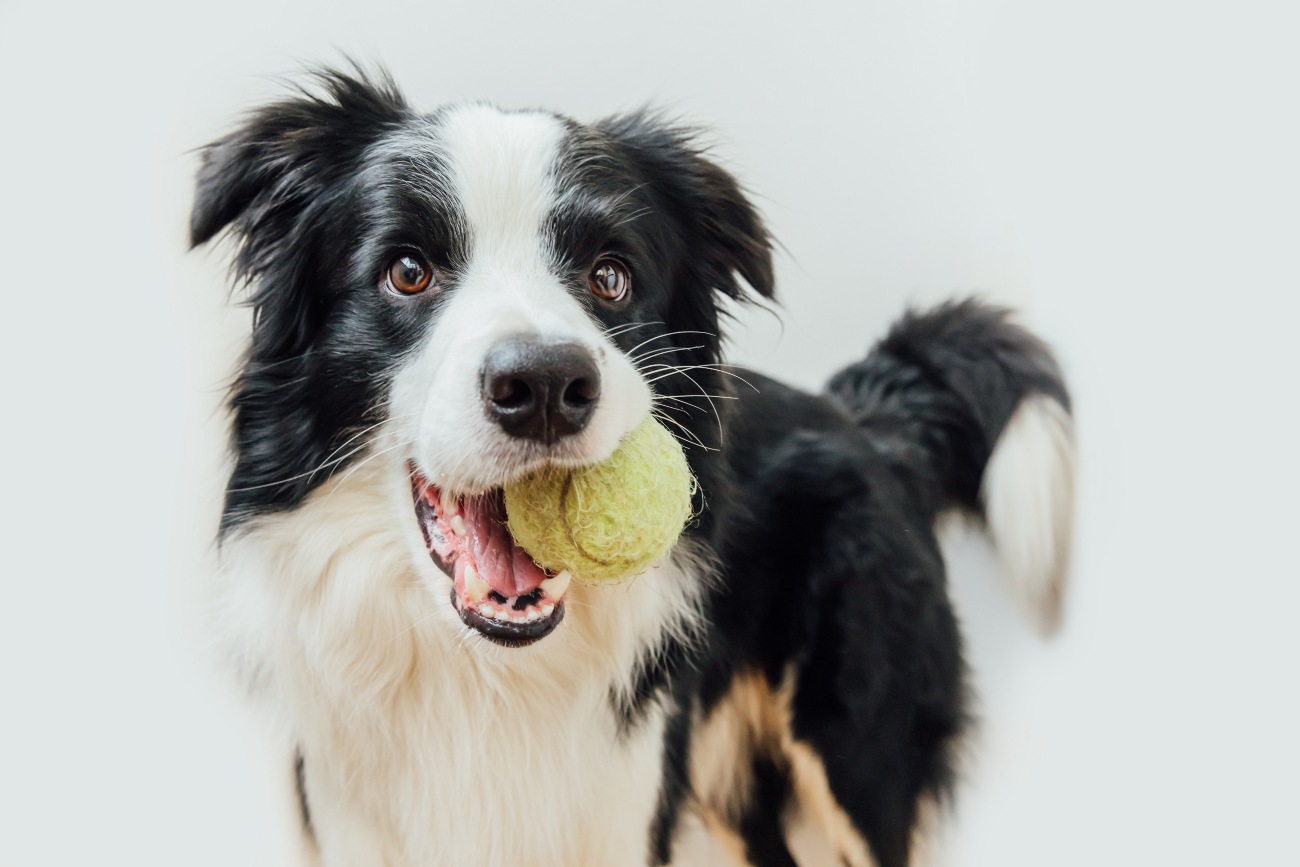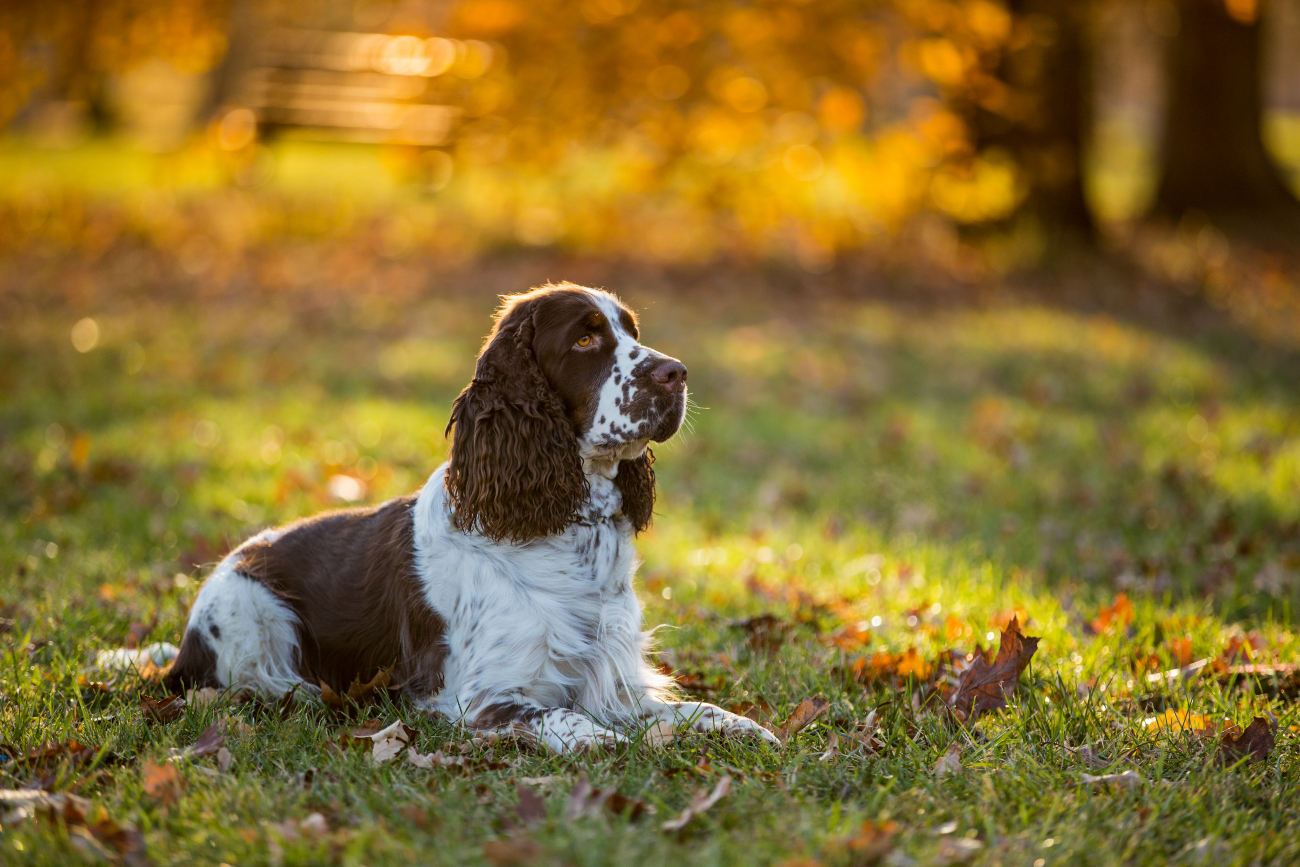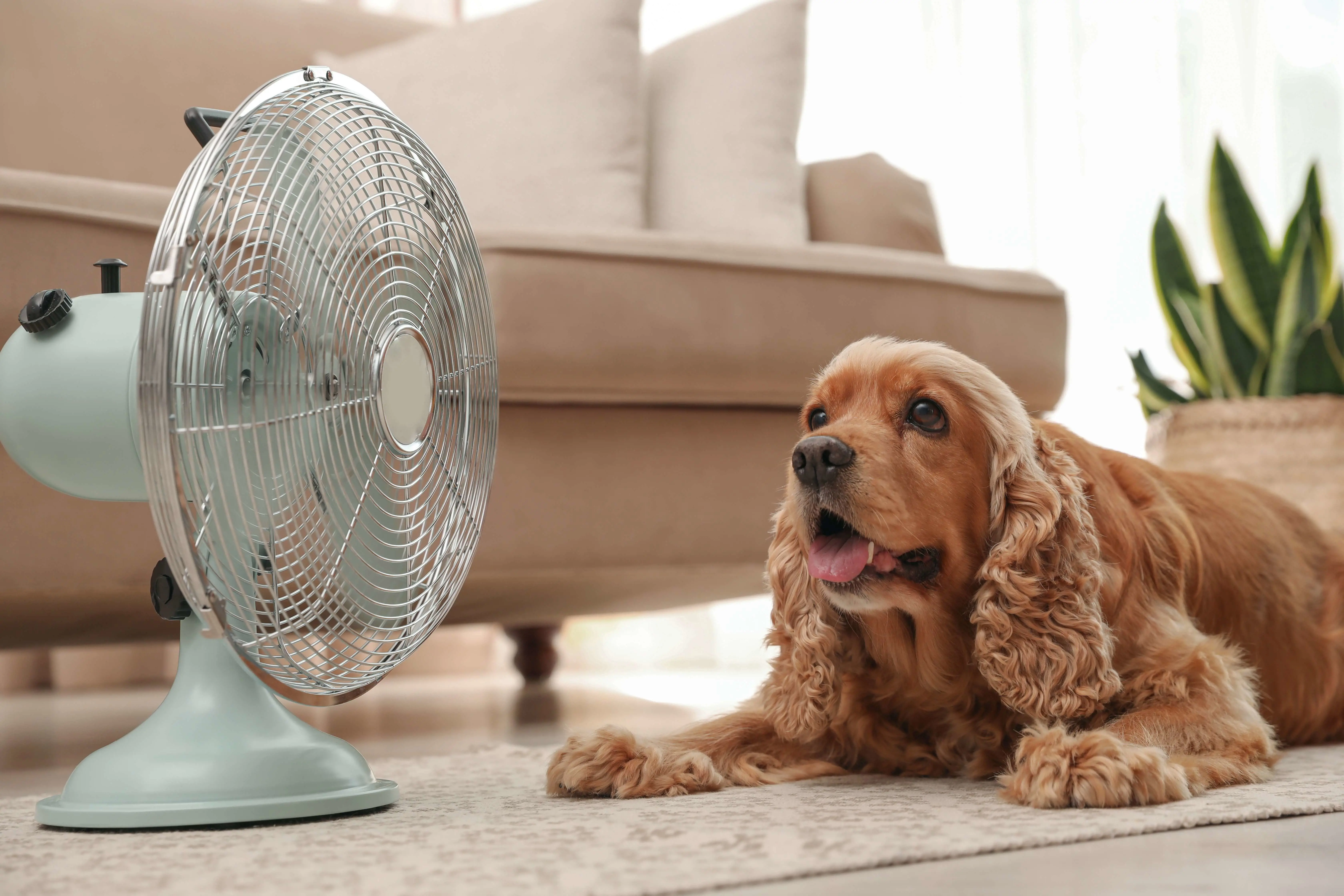Common whippet health concerns
30th January, 2023

Just want a brief summary of the article? Watch our short video instead!
Wondering what’s wrong with your whippet? Get to know these 5 common health concerns so you can get your canine back on track.
What’s not to love about a whippet? Uber-affectionate, admirably patient, highly adaptable, and remarkably athletic.
That’s right. Whippets are one of the best kept secrets in the dog world (in their owners’ eyes, at least). They certainly have a lot going for them.
Yes, they’re sometimes mistaken for greyhounds. And yes, they have been labelled the ‘poor man’s racehorse’. Or the ‘poor man’s greyhound’. Or lightning rag dogs – more on that in a bit. But, they are also incredibly gentle, loyal and make wonderful family pets.
Always their happiest when with their humans, whippets are as charming as they are cuddly.
In this blog, we’ll look at what makes this wonderful breed of dog so unique. We’ll look at some key health concerns in whippets, offer tips on how to care for your pet, and show what symptoms you need to look out for.
Your dog’s health is as important to us as it is to you, so we’ll also look at the benefits of dog insurance and how you can make it work for you and your pooch.
5 fast facts about whippets
First up, let’s start with a few facts about the breed. Medium in size and with a slender frame, whippets are the perfect size to snuggle on your lap. But make no mistake, they’re built for speed and don’t mess around getting from A to B.
If you’re considering welcoming a whippet into your home, here are a few things you may not know about the breed.
1. They’ve earned a few nicknames over the years
Whippets have gained a few ‘pet’ names over the years. Most refer to their speed and fitness levels. However, not all are particularly flattering:
- Poor man’s racehorse: Whippets can reach speeds of up to 35mph. Impressive, right? A racehorse can reach speeds of up to 55mph. You get the drift.
- Snap dog: In the 18th Century, there were contests to see which dogs could snap up the most rabbits the quickest. Whippets were bred to catch rabbits, so they performed rather well.
- Lightning rag dog: When the use of live bait (aka rabbits) was made illegal, rags were used to lure whippets along race tracks, earning them this superhero-esque nickname.
- Poor man’s greyhound: In days gone by, the British upper class owned greyhounds. If you were poor, you had to ‘make do’ with a whippet.
2. They’re best when they’re with their squad
Historically, whippets would hunt in groups. As a result, they get anxious and lonely when not with their ‘squad’ (either doggy or human).
Separation anxiety is a big thing with whippets. If you’re out of the house for long periods of time, having more than one dog will give them the company they crave. It’ll also ensure their mental health doesn’t suffer in the process.
Whippets take their role as man’s best friend very seriously and adore spending time with their human companions. Whether snuggled up on the sofa or hurtling around outside, you’ll love having them in your squad as well.
3. Unlike some breeds, they’re not very whiffy
There’s no sugar-coating this: some dogs are smellier than others (yes, we’re looking at you: Yorkies, Pugs, Beagles, and Cocker Spaniels, to name a few). We’re not suggesting being stinky is bad for a dog’s health, but a whippet’s lack of odour certainly adds to their charm.
Compared to some doggy stinkers, whippets are positively fragrant. Even if they get caught in the rain, they’ll probably only be mildly whiffy.
Even that subtle odour tends to vanish once they’re dry. They will require the occasional bath, but essentially these pooches are self-cleaning. They’re the pet that just keeps on giving.
4. They’re world record holders
Davy holds the record for the farthest flying frisbee caught by a dog (122.5 metres). Sounders holds the record for the highest jumping dog (11.02 metres). And Toby holds the record for the fastest time to burst 100 balloons by a dog (28.22 seconds).
All whippets. All dogs at the peak of their physical health. And all world record holders. A winning combination!
5. They can be a bit ‘delicate’
We don’t mean delicate in terms of poor health. No, this is more a reference to that bony frame, that shivery body, and that (at times) slightly neurotic behaviour.
With very little body fat, whippets get cold very easily. They shiver as a way of raising their body temperature, but this is easily fixed with the help of a padded dog coat.
And that seemingly neurotic behaviour in whippets? That’s usually down to anxiety, the main cause of which is being left on their own – yet another easy fix.
How to look after your whippet’s health
According to the PFMA, there are around in the UK. Not all of them whippets, but all of them with their own unique likes, dislikes and vulnerabilities.
And some of those vulnerabilities will be health-related. All dogs are susceptible to certain illnesses and certain conditions are genetic. That’s not to say that all whippets will be affected by every disease they are genetically linked to. Some dogs will sail through life with very few health issues – but not all.
Knowing what health concerns are most prevalent in whippets is important for any doggy parent. It gives you an idea of what might happen in the future and the symptoms you need to be aware of today.
If you’re ever in any doubt about your whippet’s health, you should always seek advice from your vet. Got a policy with Purely Pets? You’ll have access to vet video calls, 24/7.
5 health concerns in whippets
Whippets are a fairly healthy breed of dog. They aren’t particularly prone to infections or allergies like some breeds, but they can still suffer from issues with their health. These can include:
1. Eye problems
They’re not very common, but eye problems have been linked to the whippet breed.
As whippets get older, they can start to lose their eyesight. Cataracts are a common cause of blindness in older dogs, which causes the lens of the eye to look cloudy rather than clear.
Most dogs that start losing their vision can adjust fairly well. However, expensive surgery is an option if that is not the case.
There are also inherited eye problems seen in whippets, including progressive retinal atrophy (PRA) and corneal dystrophy (CD).
PRA is a genetic condition which means a dog’s eyes are programmed to go blind over time. Whippets are more likely than other dogs to develop PRA and while it is not painful, it’s also not curable.
Meanwhile, CD causes small crystals to form in the cornea. Again, the condition doesn’t hurt the dog and usually only causes partial blindness. It can be treated, but there’s nothing to say the crystals won’t reform.
2. Heart conditions
Heart failure is one of the leading causes of death among older whippets. It happens when one of the heart’s valves stops working properly so the heart has to work much harder. Heart disease in dogs is called mitral valve disease (MVD) and whippets can be more prone to it than other breeds.
One of the early symptoms of MVD is a heart murmur. The good news is that a whippet can have a heart murmur for many years with no negative effects on its health.
However, this is a condition that gets progressively worse over time, leading to changes to the shape of the heart, symptoms such as coughing, lethargy or collapse, and eventually the possibility of heart failure. Unfortunately, there is no cure, but your vet can monitor the condition and provide medication as required.
3. Autoimmune conditions
Autoimmune conditions are the result of a fault in the immune system that causes the body to attack healthy cells. Whippets can be affected by such a condition, specifically, immune mediated haemolytic anaemia (IMHA). In this case, the body targets red blood cells, which can lead to severe anaemia and even death.
Symptoms can come on suddenly and include pale gums, lethargy, reduced appetite, jaundiced skin, fast breathing, and collapse.
This is a serious condition and needs fast intensive treatment (for example, steroids, blood transfusion, and oxygen). Most whippets with IMHA get better as long as they get the right veterinary care. But that care can be expensive.
There might be more than one treatment option available for your whippet. Having the right pet insurance for dogs in place before symptoms arise means your vet’s bills may be covered and you can get the rapid, life-saving treatment your pooch needs.
4. Cuts and wounds
Whippets tend to suffer from more scrapes and scratches than other breeds of dog. Their thin, light coats don’t offer a huge amount of protection from thorny undergrowth and sharp branches.
And if they are unfortunate enough to be involved in a dog fight, a whippet is likely to come off worse than the other dog.
Plus, they just love hooning around wide open spaces at lightning speed – that kind of behaviour is bound to end with the occasional scrape, cut, flea or tick!
Check your dog’s coat for ticks – especially after long walks – and destroy any ticks that you find.
As for cuts, as long as it is not very deep, you can simply clean the wound with a bit of salt water and try to keep it dry until it is healed. If a cut is deep, it may be bleeding a lot. If the bleeding doesn’t look like it’s going to stop, you should book a visit to the vet. It could be that stitches are in order.
Dog pet insurance can come to the rescue in emergencies like this.
5. Hair loss
Whippets can be prone to baldness. It can affect both males and females, and once the hair falls out it doesn’t grow back. Usually seen on the throat, chest, belly and legs, the hair loss doesn’t cause irritation.
Once your vet has ruled out any other conditions that have hair loss as a symptom, they may be able to prescribe hormones. These can help manage hair loss, but can’t prevent it.
The health of your pet is as important as your own. As soon as you notice a change in your pet’s health, you need to take action. The faster you can get them to a vet, the faster you can get a diagnosis and treatment.
Vet’s bills can soon add up, but pet insurance for dogs` helps you cover those costs and ensure your dog gets back to full health as soon as possible.
Health tests for whippets

Whippets have a life expectancy of between 12 and 15 years and you want them to be happy and healthy that whole time.
To keep your whippet in great health for as long as possible, they need to eat well, get plenty of exercise, and have regular visits to the vet. We’ll also add having reliable pet insurance for dogs to that list because it is an important aspect to consider when owning pet in order to help keep them protected at all times.
But the health of your whippet is something you need to consider long before you start bonding with your pup. It begins as soon as you start thinking about buying a puppy.
Potential health issues can be picked up long before an animal has even been born, so always go to a responsible breeder who has a Local Authority licence and can provide genuine paperwork relating to vaccinations, microchipping, worming, and health test results.
The Kennel Club (an organisation devoted to dog health and welfare) advises breeders of whippets to use DNA tests, screening schemes, heart testing, and inbreeding coefficient calculators to keep the breed as healthy as possible.
Essentially, these tests flag up if a dog is likely to be affected by specific health conditions (especially those affecting the heart) and can help avoid the health risks associated with inbreeding.
Signs of ill-health in your whippet
Keeping an eye out for symptoms is all part of owning a dog. Anything out of the ordinary could be a temporary issue. But it could also be a sign of something far more serious. Knowing when to seek a professional opinion is key to your pet’s wellbeing.
Here’s when to get in touch with your vet to make a routine appointment:
- Change in appetite
- Weight loss
- Lumps and bumps
- Persistent scratching chewing or licking skin
- Dull coat or hair loss
- Bad breath, red gums, broken teeth
- Change in behaviour – e.g. more aggressive, anxious, easily startled etc
- Lethargy
Here’s when to get veterinary care as soon as possible:
- Shaking the head, sore ears, discharge from ears
- Coughing (especially at night or after waking)
- Difficulty urinating, change in colour of urine
- Cloudy, red, itchy eyes
- Stiff joints or a reluctance to sit or use stairs
- Change in behaviour following medication
Keeping your whippet healthy at home
You love your dog. And your dog loves you.
One way to show you care is by doing what you can to make sure your dog stays healthy. This means keeping up to date with routine health checks, such as vaccinations, worming treatments, neutering and dental check-ups. It also means looking after them at home.
Here are some tips to help keep your whippet happy and healthy all year round.
Feeding your whippet
As with all dogs, a whippet’s appetite and dietary needs will change over its lifetime. At every age, they will need a full, well-balanced diet to keep them fit and strong. They will also benefit from consistency in their feeding routine.
An active adult whippet will enjoy tucking into a combination of dry food and fresh meat twice a day. As your dog grows older, they will become less active, so you’ll need to reduce the amount of food you put out for them. Speak with your vet if you’re unsure what type or how much food your pet should be eating.
Ultimately, your aim is to keep your pet in great shape. Neither underfed, nor overfed. A whippet’s frame is not able to carry excess weight so too much food is a definite no-no.
Exercising your whippet
A whippet will need an average of about an hour’s exercise every day. This can be taken in short bursts, rather than a solid block. Making sure they get enough daily exercise will keep them in good health.
As with all hounds, once a whippet gets a scent of something that takes their fancy, they’ll be off like a shot. When walking a whippet puppy, keep them on the lead so you can keep them in check if they decide to chase prey. As they get older, you can train them to respond to your commands, so they can run freely off the lead and will come back when you call them.
Try to stick to a routine of when you go out for walkies each day. This will help your pet’s mental health, as well as their physical health.
Grooming your whippet
Whippets shine in many ways – including in their grooming. Shedding very little fur and only needing to be brushed once a week makes them strong contenders for the dream pet award. Is there such a thing? If not, then there should be…
Of course, they also love to be fussed over and would gladly have their coats brushed 24/7 if they could.
You’ll only need to get them in the tub if they are really dirty, and they rarely get smelly. A quick wipe down with a damp cloth is all they need after a wet walk.
The cost of keeping your whippet healthy
As with looking after any dog, the cost of caring for a whippet can soon mount up. Once you’ve invested in all the equipment and paid for your pup, there are other ongoing costs to consider. From food to healthcare, you need to make sure you’re giving your pooch everything they need to stay happy and healthy.
But remember: however healthy your whippet is today, things can go wrong. Having pet insurance for dogs in place can help you cover any treatment costs.
You’ll find most pet insurance for dogs’ policies don’t cover preventative healthcare, for example routine vaccinations, neutering and worming. You will have to pay for these yourself.
Even if your pet is a little under the weather, vet’s bills can quickly add up. Make sure you take out as soon as you can.
A (quick) guide to dog pet insurance

A great way to keep unexpected costs down is with pet insurance for dogs.
How much you pay for a policy will depend on things like the type of cover, the age of your pet, their breed, and where you live in the UK. If you feel your pet insurance premiums are too high, you may be able to lower them by increasing your excess and in some cases getting your pet microchipped.
Owning a dog is a pleasure, but it’s also a responsibility. You need to protect your pooch and give them the best quality of life possible.
At Purely Pets, we offer a range of lifetime pet insurance for dogs, a policy designed to give you the support you and your dog needs should they become unwell.
Get in touch with our specialist team for pet insurance for dogs quotes today and keep your whippet fighting fit!
Helpful Pages
Recent Posts
Pet Insurance Quote
- 98% claims paid *
- Claims paid directly to vets
- 24/7 vet video consultations
- Interest free monthly payments




